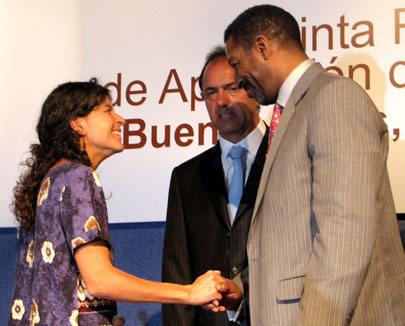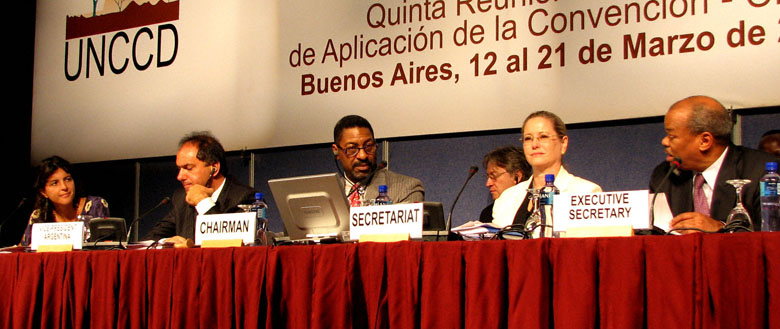 |
 |
|
Fifth Session of the Committee for the Review of the UN Convention to Combat Desertification (CRIC 5) |
12-21 March 2007 | Buenos Aires, Argentina |
Web Coverage |
Highlights for Monday, 12 March |
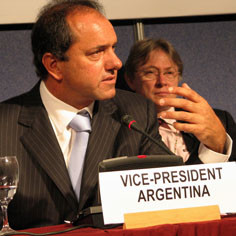 |
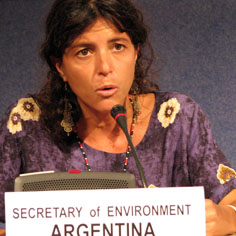 |
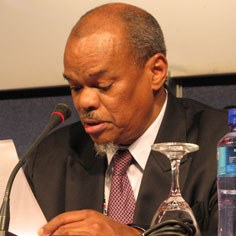 |
||
Daniel Scioli, Vice-President of Argentina |
Romina Picolotti, Secretary of Environment and Sustainable Development of Argentina |
Hama Arba Diallo, Executive Secretary of the United Nations Convention to Combat Desertification |
Regional Reports to Plenary |
Delegates met in regional groups and then presented the results of their deliberations in Plenary. Following regional reports, delegates heard panel presentations and discussed participatory processes involving civil society, NGOs and community-based organizations. |
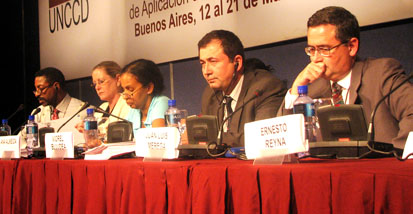 |
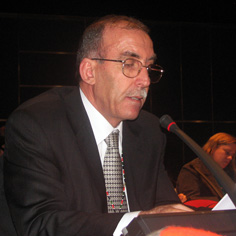 |
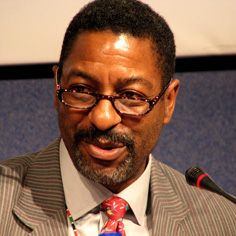 |
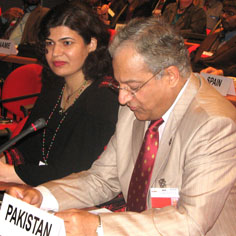 |
||
Syria, on behalf of the Asian Group, emphasized the importance of the 10-year strategic plan for better UNCCD implementation. |
Chair Moore emphasized that as the UN Framework Convention on Climate Change devotes more attention to adaptation and vulnerability, opportunities to develop synergies with UNCCD arise. |
Pakistan, for G-77/China, noted that desertification and land degradation continue to threaten sustainable development, including through overgrazing, deforestation and human demographic expansion, combined with the effects of climate change. |
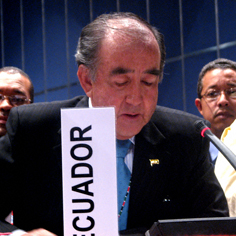 |
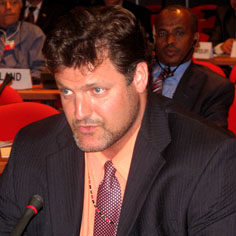 |
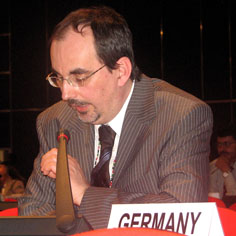 |
||
Ecuador, for the Latin American and Caribbean Group (GRULAC), highlighted that notwithstanding the lack of sufficient funding for the Convention’s implementation important steps have been taken at the global level to address desertification. |
Canada, for JUSSCANNZ, emphasized that IYDD events have been instrumental in raising awareness of desertification and land degradation as a serious development issue. |
Germany, on behalf of the European Union (EU), questioned whether the seven thematic topics used by the CRIC to evaluate and report on the implementation of the UNCCD should continue to guide its possible future work. |
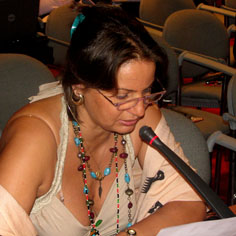 |
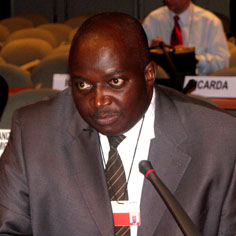 |
|||
ASPAN, on behalf of NGOs working to combat desertification, recalled that amongst the principles of the UNCCD, parties must guarantee the full participation of civil society in combating and mitigating desertification. |
Uganda, for the African Group, underlined the need to maintain a focus on addressing the main barriers to UNCCD implementation such as a lack of adequate resources and institutional capacity at local and national levels. |
Panel I: Participatory Processes |
 |
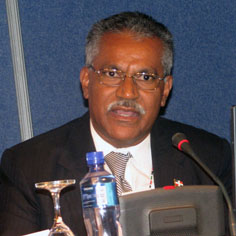 |
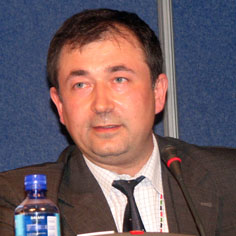 |
||
Ana Almeida, Portugal, presented on the democratic process for the establishment of Portugal’s NAP explaining the different actors that take part in the Portuguese policy process, their objectives, results and degrees of success. |
Ernesto Reyna, Vice Minister for Environment, Dominican Republic, shared his country’s experience in adopting a participatory approach for NAP formulation. |
Viorel Bludjea, Romania, presented a systematic approach for strengthening the involvement of the scientific and technical community in sustainable land management and combating land degradation. |
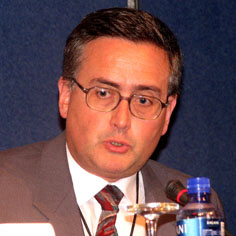 |
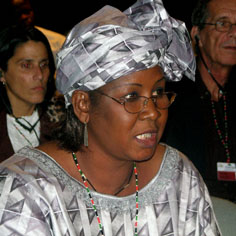 |
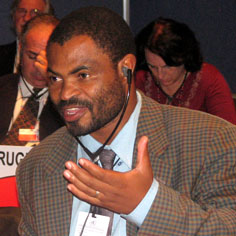 |
||
Juán Luis Mérega, Argentina, stressed that active civil society participation is enabled by a certain level of democratization, strong political will to ensure participation over time and adequate institutional support. |
Maiga Sina, AFAD, Mali said that although full participation can be expensive, it is the key to effective implementation of the convention. |
Swaziland stressed importance of participation by all the stakeholders as well as means of participation such as synergies and resources. |
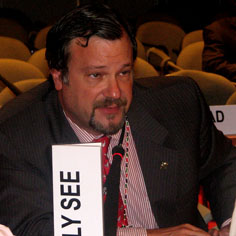 |
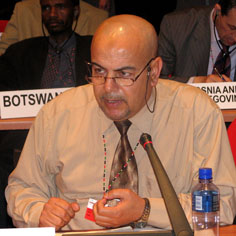 |
 |
||
The Holy See, highlighted the importance of participation of enterprises as well as scientists in UNCCD implementation. |
Algeria stressed that reports and presentations to CRIC-5 suggest that participation remains low, and recommended that COP-8 review and consider ways to strengthen the participatory process. |
Mali said that participation includes giving people the power to make decisions and understand their responsibilities. |
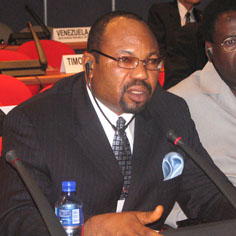 |
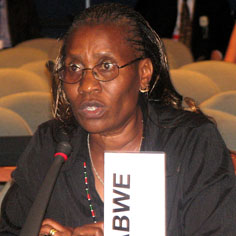 |
|||
Nigeria suggested that theoretical concepts of participation do not match on-ground realities in Africa, citing lack of facilities, awareness and education as well as low purchasing power as major barriers to participation in Africa’s rural areas. |
Zimbabwe suggested strengthening the role of special groups such as women and youth. |
Related Links |
IISD RS Resources |
|


